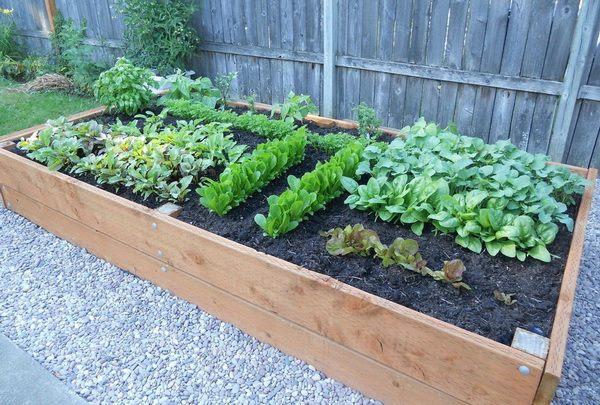Fortunately, there are several ways to wage war against pests without resorting to pesticides. Companion planting, proper spacing, and natural methods of disease and pest control can ensure a healthy garden production without the need for nasty chemicals.
Organic Garden Pest Control With Companion Planting
Some plants have natural properties that help others grow and deter pests when planted close by. Making use of these natural properties is a way to increase production in the garden and fit more plants into a smaller space. The following are a few popular companion plants:
- Basil planted with tomato improves production and flavor. Basil is also good for peppers and has been said to repel mosquitoes. I plant basil throughout the garden for its aroma and beneficial properties.
- Borage is a great companion for tomatoes and cabbage as it repels both tomato horn worm and cabbage moths. It also helps strawberries and is beneficial to practically everything in the garden. I plant throughout.
- Chamomile is a great companion for cabbage, cucumbers, onions and all the brassicas. It improves flavor and is a great herb to have on hand. It attracts beneficial insects and has delicate and beautiful flowers.
- Dill is also great planted with cabbages, cucumbers, lettuce, and more. It improves flavor, helps repel pests, and is useful in making homemade pickles! It can get pretty big so I plant in the middle of cucumber beds. (Don’t plant with tomatoes!)
- Catnip is another great herb to grow and have on hand. Planted near squash and cucumbers it will repel squash bugs and aphids. Steep the dried leaves in a tea to help sooth the stomach, and spray the tea on plants as a pest control spray!
- Radishes can be planted throughout the garden and under plants like cucumbers to deter cucumber beetles.
- Marigolds planted throughout the garden help prevent nematodes and repel pests. They will flower all summer as long as you keep pulling the dead flowers off.
- Nasturtiums are also great companion flowers to tomatoes, cucumbers, cabbage, and more. The flowers are edible and can be added to salads. They benefit melons and squashes as well.
- Onions can be planted freely throughout the garden but help keep pests away from cabbages, broccoli, tomatoes, strawberries, peppers, cucumbers, and more. Intercropping a few with all of these plants can greatly reduce garden pests.
- Sunflowers are great companions and beautiful throughout the garden. Plant with cucumbers, beans, and vining plants to provide a trellis. They are hardy and a great trap crop for aphids and other pests. They typically produce plenty of their own seeds to use next year.
There are many other great companion plants. Check out this chart for some other ideas.
Natural Pest Control Options
Companion planting is helpful, but if you’ve already planted and are having trouble with pests, some other natural solutions can be helpful:
- A tea or solution made from powdered kelp will help deter Japanese beetles and aphids and is also nourishing to plants. Spray once a week or so before and during infestation times.
- A garlic and hot pepper spray (see recipe below) repels many garden insects and wildlife pests. It is probably the most inexpensive option to make at home and isn’t harmful to you while applying. Use once a week or more for several weeks before and during infestation times.
- A tea made with lemon balm repels squash bugs and aphids. Apply 2 or more times a week as needed.
- A solution of several teaspoons of baking soda dissolved in water can help prevent and treat fungus and powdery mildew on plants. Use as a preventative and acute treatment as needed.
- Powdered diatomaceous earth is a good all-purpose prevention and treatment for any insect pest, but use with caution as it kills indiscriminately. I use DE mainly if I see slugs or larvae of any insect on plants, as it is especially effective on these. Just sprinkle on plants as needed and reapply after watering or rain. (Note: I buy food-grade DE and also use it for indoor pests like ants and as an internal cleanse for parasites in humans and animals.)
- Neem sprays are an increasingly popular pest control option and are available in many stores now.
Hot Pepper Garden Pest Spray Recipe
This is my go-to homemade garden pest control spray and it works really well!
Ingredients:
- 2-4 cloves of garlic
- At least 4 hot cayenne (or hotter) peppers
- 2 TBSP olive oil or other liquid oil
- 1 TBSP liquid castile soap like Dr. Bronners
- 2-3 cups hot water
- blender (I use my Vitamix)
- towel, strainer, or cheesecloth
Instructions:
- Put garlic, peppers, oil, soap, and water in a blender and blend on high for several minutes.
- Leave in a bowl or pitcher overnight or for at least 12 hours to intensify the effects of the garlic and peppers.
- Strain through towel, cheesecloth, or strainer and store in a glass jar.
- To use, pour about 2 TBSP in a 16 ounce spray bottle (or 3 TBSP in a 24 ounce) and shake well.
- Spray directly on plants as needed… I recommend wearing gloves!
- Use as often as needed for preventative and pest-controlling effects.
If you don’t want to make your own they do make store-bought natural pepper sprays but I prefer the homemade version to avoid the paraffin wax they contain (made from petroleum). That said, it’s still better than spraying your garden with pesticides! Just be sure to wash produce well and also use a vegetable wash.
Homemade Organic Fertilizer
Strong plants resist pests more easily too, so growing strong and healthy plants is an important step in protecting your garden from pests.
- Kelp tea is not only a great way to naturally control garden pests, it is also a great foliar spray that nourishes plants when sprayed on the leaves (just don’t spray during the heat of the day). Sprinkling powdered kelp around plants can also have a nourishing effect.
- Nettle tea is another plant-nourishing option to spray on plants, or add dried nettle leaf directly to the soil or compost.
- Yarrow flowers can be made into a tea or liquid mixture and used to water plants for extra nutrients. You can also just sprinkle yarrow flowers throughout the garden and they are said to have a pest-repelling effect also.
- Fish emulsion is a natural fertilizer that can be sprayed on the leaves of plants to help promote growth. It is especially good for tomatoes. It smells awful but is very effective!
- Bone and blood meal are high in nitrogen and very fertilizing to plants. They are also somewhat controversial since they are animal products. Organic options are available and can be great if you are comfortable using them.
Row Covers
Keep bugs from moving in by using row covers. Floating row covers (basically fabric stretched over wire hoops) let light and water through but keep out pests who want to snack on devour your precious produce. They also keep them from laying eggs that later cause bigger outbreaks.
Row covers are quite practical in small gardens and even extend the growing season a bit. It isn’t necessary to cover everything, but particularly vulnerable crops like potatoes, squash, and cabbage will benefit.
Scouting and Hand-Picking
Yes… I really mean it… if you want an organic garden, squishing bugs might be part of the deal.
While hand-picking bugs and other pests out of the garden isn’t practical for a large-scale problem, if you use the steps for organic pest control above you hopefully will prevent any out-of-control situations.
Take the time to walk through the garden for 5 minutes every day. This is called “scouting.” Look at the plants, turn over the leaves, and check the soil for signs of any current or potential pest damage — eggs, larvae, chewed leaves, etc.
Frequent and close observation means you’ll be ready with one of the remedies above before disaster strikes!




